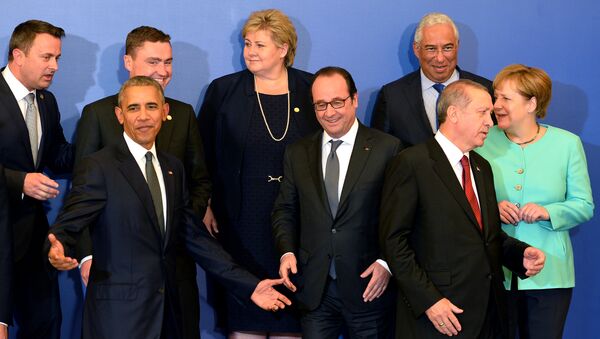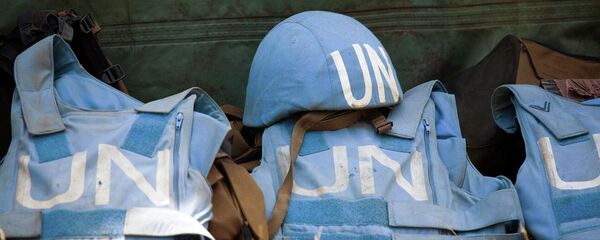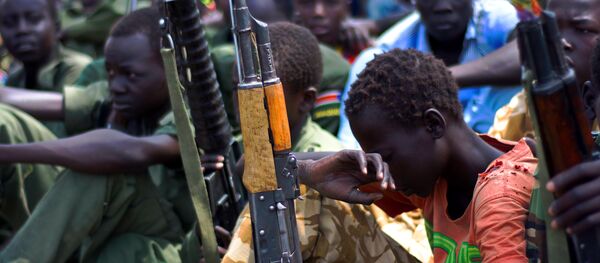What is World Humanitarian Day?
This #WorldHumanitarianDay choose the world you want to live in: https://t.co/471GHCkbaq #ShareHumanity pic.twitter.com/gpTX0N4Sz7
— UNOCHA (@UNOCHA) August 18, 2016
UN Secretary-General, Ban Ki-Moon provides a helpful definition, fitting as it is the UN General Assembly that has designated August 19 to be the day for acknowledging the impact of humanitarianism worldwide:
"World Humanitarian Day is an annual reminder of the need to act to alleviate the suffering. It is also an occasion to honour the humanitarian workers and volunteers toiling on the frontlines of crises. I pay tribute to these dedicated women and men who brave danger to help others at far greater risk."
James Munn is the director of humanitarian policy for the Norwegian Refugee Council (NRC) and he provides a sharp critique of what this annual day should emphasise and it doesn't do so:
"World leaders who established World Humanitarian Day have created a mockery. And aid workers it celebrates have been set up to fail catastrophically," Mr. Munn explains.
Ahead of #WorldHumanitarianDay, @UNReliefChief says humanitarian tasks are 'not suicidal' but 'courageous' missions pic.twitter.com/nMXP1ppEoe
— UN News Centre (@UN_News_Centre) August 18, 2016
"However skilled or brave humanitarians may be, their efforts are wasted without the real political leadership to resolve conflicts and share the global responsibility for hosting people fleeing conflict."
With over a decade of experience working in the humanitarian "industry," Munn conveys the important fact that without the agreement of world leaders, lasting solutions to global problems will not be found. He points out that this year leaders have been presented with opportunity after opportunity to show initiative and consensus to end conflicts and protect refugees yet they have failed monumentally.
Anders Kompass is a former UN official who after two decades of service resigned from his post exposing the sexual abuse of children by peacekeepers in Central African Republic.
"The UN's accountability system is broken. It simply doesn't work," Kompass said in an article for IRIN News.
Upon leaving his role with the UN, Kompass felt he had no choice but to leak information of the many ethical breaches he witnessed whilst in his role. He wanted to attempt forcing the UN to act upon ethically compelling issues that he felt had been purposefully ignored or hidden by those internally responsible. As a whistleblower, he used the leverage of public opinion and uncovered the bureaucracy of UN staff entrusting the defense of ethics to the public outside rather than to the managers inside its organization.
Lift my hat for Anders Kompass, listen to him yesterday. Whistle blower, calling out UN soldiers raping small boys. Thx for your courage
— Magnus Sund (@mangesund) August 5, 2016
Reflecting further on his resignation from the UN he added:
"I still believe that a universal organization is needed to improve the chances of world peace and progress. But I also believe that without great changes aimed at resurrecting ethical behaviour within the UN, the organization will not be able to successfully address the challenges of today and of tomorrow."
The 2016 theme for World Humanitarian Day is "One Humanity":
But world leaders are clearly reading from a very different script in which humanity isn't "one" but instead differentiated between sections of the world where it should or shouldn't be applied.
"We are committed to building bridges & helping to embrace all of humanity under one umbrella" #OneHumanity #WHD2016 pic.twitter.com/OD3taEVvTB
— NelsonMandela (@NelsonMandela) August 19, 2016
Europe facing its biggest refugee crisis has been dominating the headlines and mainstream news… Add to this wider humanitarian problems with the regional Zika virus outbreaks this year, primarily affecting the poorest communities first; child soldier nightmares escalating in Sudan and surrounding countries; the lack of free education by women in Zimbabwe, the attack on Yemen-based hospitals by the Saudi-led coalition. The list goes on, and there is certainly no sign of "One Humanity" here.
The symbolic forming of the Refugees Olympic Team in Rio is certainly something that has emphasized the message of hope and added a little more momentum to the need for a global call to action that "something" needs to be done to give hope to the many other millions of displaced refugees, many of whom are unlikely to even know that the Rio Olympics is even taking place.
If "One Humanity" is going to be a lasting theme that goes way beyond the trending hashtags on August 19 — and empty rhetoric by Ban Ki-Moon and the world leaders he is calling on to take more action — it is going to take exactly that by each and everyone worldwide to also urge our political leaders to "take the action that is needed."
The crisis in Europe is described as minuscule compared to what countries like Turkey and Lebanon are responding to and yet the pact within the EU and outside means countries are able to play the "if we can't see them, there is no problem" game.
Do not close your eyes to conflicts and disasters affecting millions of people today. Act now and #ShareHumanity!https://t.co/BmRy7JTLLF
— UN Women (@UN_Women) August 18, 2016
To quote James Munn again, Director of Humanitarian Policy at the NRC:
"World Humanitarian Day was set up to celebrate the spirit of people helping people. Dedicated aid workers around the world stand ready to do their jobs and will continue to do so. It's about time that political leaders now also set an example and do theirs."




